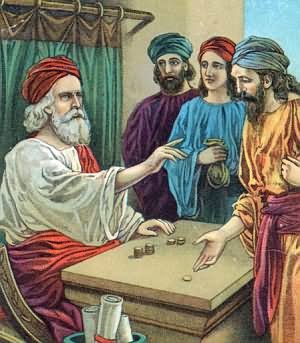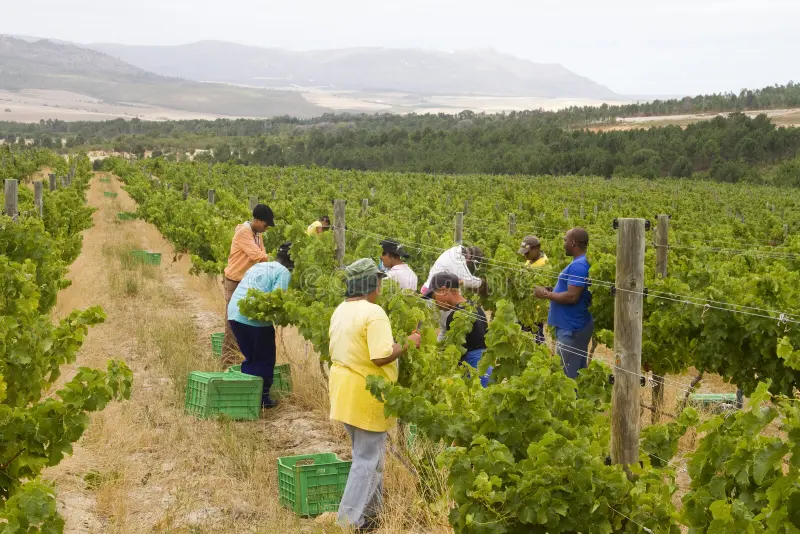Jesus speaks another parable in Matthew 13:33. Though it is a parable of a few words in fact just one statement, one cannot underestimate the meaning of these few words.
Jesus draws from the scenes and activities of everyday life to explain heavenly meaning to life’s reality. He began with things which were entirely familiar to his hearers in order to lead them to things which had never yet entered their minds and neither our minds. He took the parable of the sower from the farmer’s field and the parable of the mustard seed from the husbandman’s garden; he took the parable of the wheat and the tares from the perennial problem which confronts the farmer in his struggle with the weeds, and the parable of the drag-net from the seashore of the Sea of Galilee. He took the parable of the hidden treasure from the everyday task of digging in a field, and the parable of the pearl of great price from the world of commerce and trade. But in this parable of the leaven Jesus came nearer home than in any other because he took it from the kitchen of an ordinary house.
In Palestine bread was baked at home; three measures of meal was, just the average amount which would be needed for a baking for a fairly large family. In all probability Jesus took his parable of the Kingdom from something that he had often seen his mother, Mary, do. Leaven was a little piece of dough kept over from a previous baking, which had fermented in the keeping.
In Jewish language, leaven is almost always connected with an evil influence; the Jews connected fermentation with putrefaction and leaven stood for that which is evil (compare Matt.16:6; 1Cor.5:6-8; Gal.5:9). The ceremonies of preparation for the Passover Feast were that every scrap of leaven had to be sought out from the house and burned. Would Jesus be trying to use this illustration of the Kingdom deliberately. Would it not shock the listeners in hearing the Kingdom of God compared to leaven; but it would certainly arouse interest.
So, let’s now come to the central focus of the parable, it is the transforming power of the leaven. Leaven changes the character of a whole baking. As you all know unleavened bread is like a water biscuit, hard, dry, unappetizing and uninteresting. On the other hand, bread baked with leaven is soft and porous and spongy, tasty and good to eat. So, what happens is the leaven causes a transformation in the dough; and Jesus is speaking of such transformation in each of our lives, the coming of the Kingdom causes.
Let us study together the characteristics of this transformation.
- Christianity transformed life for the individual man. In 1 Cor 6:9-11, Paul gathers together a list of the most terrible and disgusting kinds of sinners, and then, in the next verse, there comes the tremendous statement: “And such were some of you.” We must never forget that the function and the power of Christ is to make bad men good. The transformation of Christianity begins in the individual life, for through Christ the victim of temptation can become the victor over it.
From this transformation a sinner becomes a victorious person. In this transformation a lost soul finds its way to heaven.
- Christianity transformed life for women. The Jew in his morning prayer thanked God that he had not made him a Gentile, a slave or a woman. In Greek civilization the woman lived a life of utter seclusion, with nothing to do beyond the household tasks. K. J. Freeman writes of the life of the Greek child or young man even in the great days of Athens, “When he came home, there was no home life. His father was hardly ever in the house. His mother was a nonentity, living in the women’s apartments; he probably saw little of her.” In the eastern lands it was often possible to see a family on a journey. The father would be mounted on an ass; the mother would be walking, and probably bent beneath a burden.
One demonstrable historical truth is that Christianity transformed life for women.
- Christianity transformed life for the weak and the ill. In heathen life the weak and the ill were considered a nuisance. In Sparta a child, when he was born, was submitted to the examiners; if he was fit, he was allowed to live; if he was weakly or deformed, he was exposed to death on the mountain side. Dr. A. Rendle Short points out that the first blind asylum was founded by Thalasius, a Christian monk; the first free dispensary was founded by Apollonius, a Christian merchant; the first hospital of which there is any record was founded by Fabiola, a Christian lady.
Christianity was the first faith to be interested in all the broken things of life.
- Christianity transformed life for the aged. Like the weak, the aged were a nuisance. Cato, the Roman writer on agriculture, gives advice to anyone who is taking over a farm: “Look over the livestock and hold a sale. Sell your oil, if the price is satisfactory, and sell the surplus of your wine and grain. Sell worn-out oxen, blemished cattle, blemished sheep, wool, hides, an old wagon, old tools, an old slave, a sickly slave, and whatever else is superfluous.” The old, whose day’s work was done, were fit for nothing else than to be discarded on the rubbish heaps of life.
Christianity was the first faith to regard men as fellow brother and sister in Christ and not mere instruments capable of doing work.
- Christianity transformed life for the child. In the immediate background of Christianity, the marriage relationship had broken down, and the home was in peril. Divorce was so common that it was neither unusual nor particularly blameworthy for a woman to have a new husband every year. In such circumstances children were a disaster; and the custom of simply exposing children to death was tragically common. There is a well-known letter from a man Hilarion, who was gone off to Alexandria, to his wife Alis, whom he has left at home. He writes to her: “If–good luck to you–you bear a child, if it is a boy, let it live; if it is a girl, throw it out.”
Contrast this to modem civilization where life is almost built round the child but in ancient civilization the child had a very good chance of dying before it had begun to live.
There is nothing in history which demonstrates the transforming power of Christianity and of Christ on the individual life and on the life of society in a clear and tangible way.
I leave with this question for both you and me to reflect on:
- Am I being transformed on a daily basis? Am I being changed into the likeness and image of Jesus Christ my Saviour?
- Do I still fall into Paul’s list of those missing the Kingdom? A list which includes fornicators, idolaters, adulterers, homosexuals, sodomites, thieves, covetous, drunkards, revilers, extortioners
- Am I a leaven for Christ?
- Am I able to help or aid others in this transformation process especially in this hurting world?
- Are people attracted to Christ when they see and meet me?



